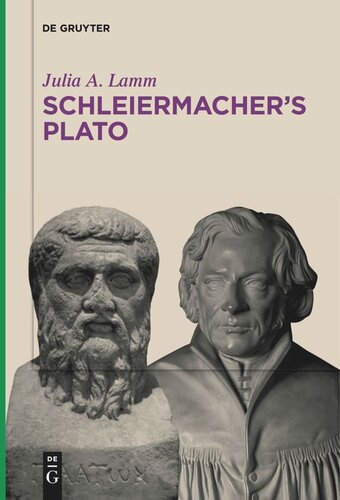

Most ebook files are in PDF format, so you can easily read them using various software such as Foxit Reader or directly on the Google Chrome browser.
Some ebook files are released by publishers in other formats such as .awz, .mobi, .epub, .fb2, etc. You may need to install specific software to read these formats on mobile/PC, such as Calibre.
Please read the tutorial at this link: https://ebookbell.com/faq
We offer FREE conversion to the popular formats you request; however, this may take some time. Therefore, right after payment, please email us, and we will try to provide the service as quickly as possible.
For some exceptional file formats or broken links (if any), please refrain from opening any disputes. Instead, email us first, and we will try to assist within a maximum of 6 hours.
EbookBell Team

4.1
40 reviewsFriedrich Schleiermacher’s Platons Werke (1804–28) changed how we understand Plato. His translation of Plato’s dialogues remained the authoritative one in the German-speaking world for two hundred years, but it was his interpretation of Plato and the Platonic corpus, set forth in his Introductions to the dialogues, that proved so revolutionary for classicists and philosophers worldwide. Schleiermacher created a Platonic question for the modern world. Yet, in Schleiermacher studies, surprisingly little is known about Schleiermacher’s deep engagement with Plato.
Schleiermacher’s Plato is the first book-length study of the topic. It addresses two basic questions: How did Schleiermacher understand Plato? In what ways was Schleiermacher’s own thought influenced by Plato? Lamm argues that Schleiermacher’s thought was profoundly influenced by Plato, or rather by his rather distinctive understanding of Plato. This is true not only of Schleiermacher’s philosophy (Hermeneutics, Dialectics) but also of his thinking about religion and Christian faith during the first decade of the nineteenth century (Christmas Dialogue, Speeches on Religion). Schleiermacher’s Plato should be of interest to classicists, philosophers, theologians, and scholars of religion.